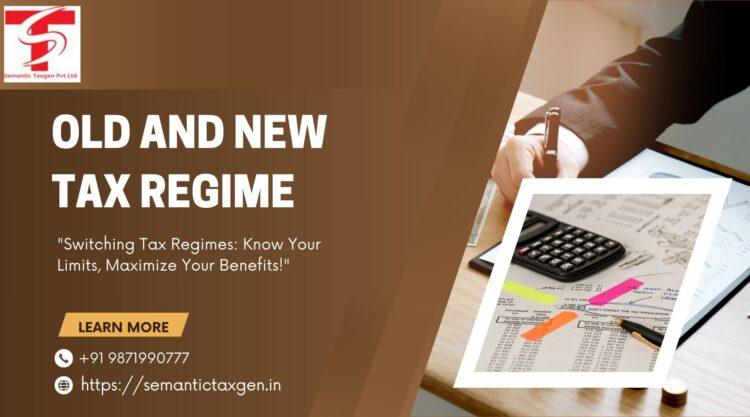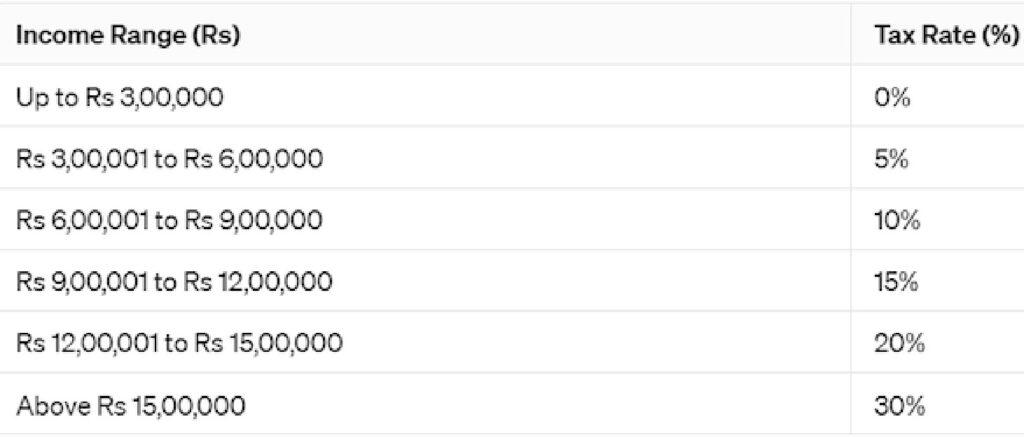
In this article we will discuss about that how to change the tax regime from new to old, how many times can you switch between it and more about new and old tax regime. While Form 10IEA must now be completed if you intend to choose the old tax regime, Form 10IE is no longer required. Form 10-IEA is a main document to consider while choosing the new or old tax system for the financial year 2023–2024 and individual who have income from business and professions must change their new regime to old regime Professionals who are paid must complete this form by July 31, 2024
With regards to income taxes, Budget 2023 has made the new income tax slabs, also known as the new tax regime, applicable by default for income taxpayers. Therefore, if the individual has not indicated that he/she wants to stick to the old IT rate then the new and revised rate of income tax under the new regime shall be charged.
Now the question that many taxpayers will ask is: whether the mechanism of transitioning by old and new income tax system be of any advantage?
Yes, an individual can choose new tax slab or can choose the old tax slab every financial year. However, the provision to switch between the new tax regime and the old one is made available only where income from salary is to be considered and the assesse does not have business income.
The change which has happened is that from, FY 24 new tax regime will be the only option available to the taxpayers. They may choose previous tax regime of filing the tax return before the due date. Employees taxed through PAYE will remain with the option of changing annually. However, there is an option to those having business or profession income wherein, getting opted for normal tax regime, they can exit only once. ”
However, if any salaried person does not wish to disclose the tax slab preferred by him or her then as from 1st April, 2023, the employer will automatically exercise the new slab for tax deduction from the salary income. However, it should be remembered once a regime has been selected, it cannot be altered during the fiscal year.
The laws pertaining to income tax make it possible for one to select any of the income tax regimes regardless of the details previously disclosed to the employer. Thus, if a person selects the new tax regime with the employer, they can also select the old tax regime while filing ITR. Make sure that your ITR has reached the concerned authority before.
Relative to the requirements of the income tax laws an individual taxpayer with business income is not eligible to opt for yearly switch between the old regime and the new regime. The new income tax regime is free for use for individual taxpayers and HUFs having business income. But once they have opted in they will have only once shot at going back to the previous tax structure so that it will not be double edged. If they have selected the old one, then they will no longer get an option to select the new income tax regime in the subsequent FYs.
CBDT has issued two new ITR forms for the AY 2024- 25 such as ITR-1 (SAHAJ) and ITR-4 (SUGAM). ITR Form 1 now comes with the selection of the tax regime part. Newly introduced with regard to ITR 4 for those having Business or professional income, the taxpayers will need to file form 10- IEA for opting out of this new regime.
Earlier, the applicants used Form 10-IE to select the new taxation option. Yet, Form 10-IE, through which individuals could choose the new tax system, are no longer available.
This change is proposed to make the new tax regime as the new normal starting from financial year 2023- 24. Thus, a new taxation regime turns into force in this case, and one has to make a conscious effort to revert to the old regime.
The previous tax structure holds many tax relieves and allowances for individuals. The frequently availed exemptions and allowances are House Rent Allowance (HRA) and Leave Travel Allowance (LTA), stated under Section 80C, 80D, 80CCD(1b), 80CCD(2) and so on.

However, in so doing, one should note that the Old Regime’s exemptions and deductions do not apply in the new tax regime. In the case of old income tax system, if the taxable income, that is, the income obtained for all the deductions is less than Rs 5 lakh, then no tax is charged. On the other hand, under the New Regime, total income would be exempt and taxpayer would pay taxes only on the remainder if the taxable income does not exceed Rs. 7,00,000.

Can we change the tax regime from new to old?
Yes, but a salaried person is free to choose between the new and old tax regime in every financial year. The taxpayer can simply switch to their preferred tax regime when completing their ITR, even if they have selected the new tax regime for TDS during the year.
Is it allowed for salaried employees to change the tax regime every year?
Yes, it’s allowed to taxpayers every year at the time of filing their tax returns to switch between the old and new tax regimes. If you have opted for the new tax regime for a year, then you cannot claim any tax benefits, whatever the tax benefits available in the old tax regime.
DISCLAIMER: The information provided in this article is intended for general informational purposes only and is based on the latest guidelines and regulations. While we strive to ensure the accuracy and completeness of the information, it may not reflect the most current legal or regulatory changes. Taxpayers are advised to consult with a qualified tax professional or you may contact to our tax advisor team through call +91-9871990777 or info@semantictaxgen.in the appropriate government authority to verify the accuracy of the information and to obtain advice on their specific tax situations.
© 2013-25 Semantic Taxgen Pvt Ltd - All Rights Reserved